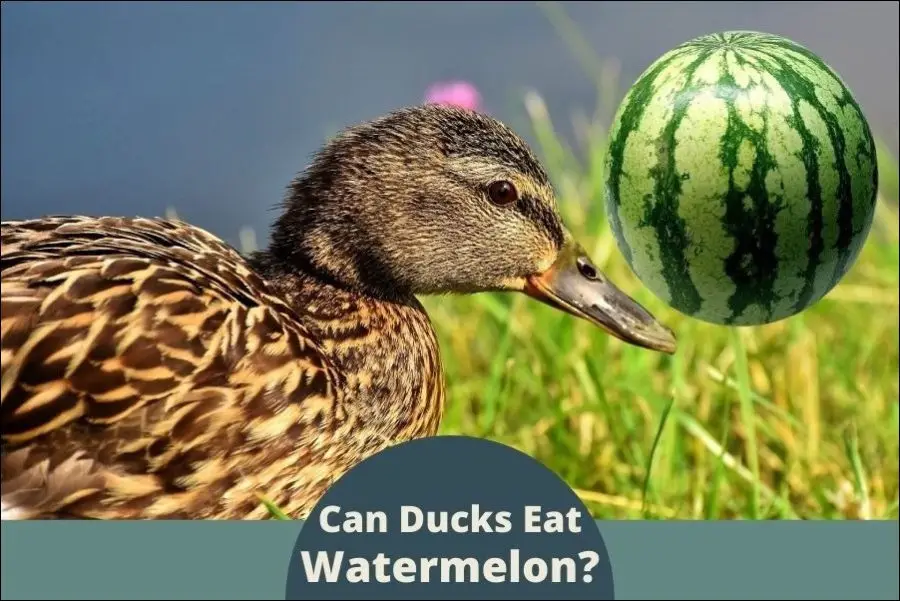
Watermelon is a refreshing treat that helps to keep the body cool during hotter days. Not only does watermelon provide a cooling feeling, but it also tastes great and provides some excellent nutrients. Almost everyone enjoys the fruit; both humans and animals benefit from eating watermelon once in a while.
Ducks can eat watermelon, and they enjoy it very much. Watermelon is rich in potassium and vitamin c, which are paramount for ducks. Watermelon should be offered as an occasional treat and in moderation. Ducks can eat the flesh, rind, and seeds of the melon.
As the name might reveal, watermelon is pretty high in water content. (92%). Food with a higher amount of water can develop diarrhea in ducks. It’s therefore important not to feed too much of it to the ducks. Diarrhea may cause dehydration which leads to kidney problems.
Feeding ducks watermelon once a week is fine, as long as it is in moderation. The eating keeps the ducks occupied for a long while, and usually, two ducks share half of the watermelon. Watermelon is low in calories but takes up some space in the stomach. It’s, therefore, important to feed the ducks their regular foods before giving them watermelon.
| Nutrient (unit) | Watermelon |
|---|---|
| Weight standard (g) | 100 |
| Energy (kcal) | 34 |
| Energy (kJ) | 142 |
| Carbohydrates (g) | 7.5 |
| Fat (g) | 0 |
| Protein (g) | 0.6 |
| Fiber (g) | 0.6 |
| Water (g) | 91 |
| Alcohol (g) | 0 |
| Ashes (g) | 0.3 |
| Monosaccharides (g) | 6.3 |
| Disaccharides (g) | 2.4 |
| Sucrose (g) | 2.4 |
| Sugars (g) | 8.7 |
| Total saturated fatty acids (g) | 0 |
| Fatty acid 4: 0-10: 0 (g) | 0 |
| Lauric acid C12: 0 (g) | 0 |
| Myristic acid C14: 0 (g) | 0 |
| Palmitic acid C16: 0 (g) | 0 |
| Stearic acid C18: 0 (g) | 0 |
| Arachidic acid C20: 0 (g) | 0 |
| Total monounsaturated fatty acids (g) | 0 |
| Palmitic acid C16: 1 (g) | 0 |
| Oleic acid C18: 1 (g) | 0 |
| Total polyunsaturated fatty acids (g) | 0 |
| Linoleic acid C18: 2 (g) | 0 |
| Linolenic acid C18: 3 (g) | 0 |
| Arachidonic acid C20: 4 (g) | 0 |
| EPA (C20:5) (g) | 0 |
| DPA (C22:5) (g) | 0 |
| DHA (C22:6) (g) | 0 |
| Tiamin (mg) | 0.08 |
| Riboflavin (mg) | 0.02 |
| Vitamin C (mg) | 10 |
| Niacin (mg) | 0.2 |
| Niacin equivalents (NE / mg) | 0.3 |
| Vitamin B6 (mg) | 0.14 |
| Vitamin B12 (µg) | 0 |
| Folate (µg) | 2 |
| Retinol (µg) | 0 |
| Vitamin A (RE/µg) | 19.2 |
| β-Karoten (µg) | 230 |
| Vitamin D (µg) | 0 |
| Vitamin E (mg) | 0.1 |
| Vitamin K (µg) | N/A |
| Phosphorus (mg) | 9 |
| Iodine (µg) | 0.4 |
| Iron (mg) | 0.2 |
| Calcium (mg) | 8 |
| Potassium (mg) | 116 |
| Magnesium (mg) | 11 |
| Sodium (mg) | 2 |
| Salt (g) | 0.01 |
| Selenium (µg) | 0 |
| Zinc (mg) | 0.1 |
| Cholesterol (mg) | 0 |
| Whole grains total (g) | 0 |
| Waste (shell etc.) (%) | 48 |
Can ducks eat watermelon?
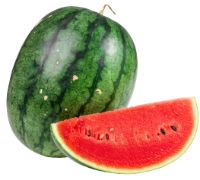
Ducks can most definitely eat watermelon. The taste, texture, and freshness the watermelon brings is an excellent tidbit for both the ducks in your backyard and the ducks in the park.
Watermelon provides the ducks with potassium, vitamin c, magnesium, vitamin b6, and calcium, which all play a superior role in the duck’s health.
You might have heard people raise the question about the amount of sugar in watermelon. Yes, the amount of sugar is pretty high in watermelon. However, it’s natural sugar called fructose and not the same kind of sugar you’ll find in a Snickers bar. Fructose is only harmful in excess amount and consuming it directly from through is not one of them.
Due to the high amount of water in watermelon, you will need to give watermelon in moderation. Consuming too much water can lead to diarrhea and dehydration. Therefore, I only feed my ducks’ watermelon once a week. If it is a scorching week, this increases.
🍊 Watermelon is an awesome treat for ducks. Ducks love to eat most fruits. There are some fruits ducks should never eat. Find out which ones.
Can ducklings eat watermelon?
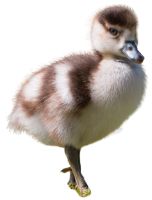
Ducklings can eat watermelon after they have turned four weeks of age. Until then, they need to consume a diet high in protein. There is special duckling feed you’ll need to provide for them. I’ve used this brand for all my ducklings, and all of them have grown up to be healthy ducks.
You can start by adding small amounts of watermelon each week and increasing the amount more over time. You can let your ducklings share a slice of watermelon each week after they’ve turned four weeks old. When they grow older, they can get two and three slices until two ducks can share half a watermelon.
Do ducks like to eat watermelon?
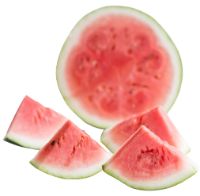
Ducks are crazy for watermelon. The way the ducks start quacking when they see me walking in with some cut in half watermelons is crazy. They know they are in for a treat.
🥗 Vegetables is crucial in a duck’s diet. Learn what vegetables you can feed ducks here.
Can ducks eat raw watermelon?
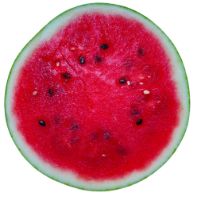
Watermelon doesn’t need to be cooked or prepared in any way for your ducks. You only need to cut it in half. Ducks prefer watermelon as it is, and you don’t need to do anything extra.
Can ducks eat cooked watermelon?
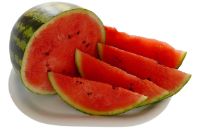
Ducks shouldn’t eat watermelon cooked. It’s popular to sear watermelon, turning it into a steak with a granular texture – almost like raw tuna. The spices and oils needed to cook the watermelon shouldn’t be in the duck’s diet. The ducks prefer the watermelon raw.
🐌 Ducks also eat slugs, insects, and other smalls. Find out what animals ducks can eat here.
Can ducks eat the watermelon rind?

Ducks can eat the watermelon rind, and they will leave it thin. Your ducks will not leave a trace of watermelon flesh on the inside of the rind.
If you have watermelon scraps that you think you are done with, the ducks will help you remove the last part.
The rind is completely fine for them to chew on and isn’t toxic or harmful.
Can ducks eat watermelon seeds?
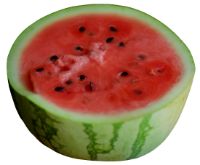
Ducks can eat the seeds of the watermelon. The old myth about eating seeds will grow the fruit or vegetable inside your stomach is just that – a myth. The watermelon seeds have some benefits seating them. The seeds contain folate, iron, zinc, copper, magnesium, and potassium. The seeds are small enough to not get stuck in the duck’s throat.
Can ducks eat frozen watermelon?

Ducks can eat the frozen watermelon as long as you defrost it first. Cutting and freezing watermelon is an excellent way to keep it fresh for later eating. Let it defrost in the fridge overnight, and you are good to go feeding it to your ducks the next day. If you don’t unfreeze the watermelon, it’s too hard for the ducks to eat and might end up getting stuck in their throat.
🥡 Some leftovers can be given to ducks. But there are some human food you shouldn’t give your ducks.
Can ducks eat moldy watermelon?

You should never give moldy or rotten watermelon to ducks. Mold is toxic and can hurt them, and in some cases, even be lethal. If you think the watermelon is soon to go bad, you might want to freeze it or use it right away. If the watermelon has turned a bit softer than usual, it’s almost rotten. It depends on how much and how much the softness hade spread that determines if you can serve it. You can cut away the soft parts and eat or feed the rest. You can give the soft parts of the melon to ants living nearby. You can cut the watermelon into smaller pieces and place them close to their ant farm. The rotten and moldy serves a better purpose for the microorganisms in your compost.
How do you cut watermelon for ducks?
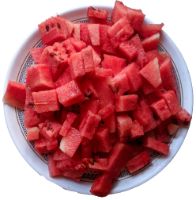
There are different ways to cut watermelon for ducks. The safest way is to cut as little as possible and let the ducks nibble their way into the rind.
There are millions of ways you can cut watermelon, but there are four ways I prefer to cut to make it safe for my ducks to eat.
1. Cut the watermelon in half.
The easiest way to cut the watermelon is simply cutting it in half. The ducks will surround themselves and nibble around the rind.
I usually serve one half per two ducks. For my six ducks, they get three halves of watermelon to share. The fourth half remaining half is mine.
2. Serve the watermelon in cubes.
If you want to make it easy for the ducks to eat and remove the hassle for them to nibble the rind, you might want to cut them yourself.
The easiest way to cut the watermelon in perfect small cubes for your ducks is to use a vegetable chopper. I use this from Amazon, and it saves me so much time with meal-prepping. The different sizes of slicers make it easy to do right and ensure there aren’t any parts too big for the ducks.
3. Cut the watermelon into classic pizza slices.
Pizza slices are a traditional way to eat watermelon. Easy to share, fun for kids, and it’s easy for ducks to nibble on.
4. Use a food processor and make a watermelon slushie.
There isn’t much that beats the taste and refreshing feeling of a slushie in the summer. Duck’s aren’t picky with their food and don’t require any more ingredients than watermelon in their slushie.
You will need to cut the watermelon into smaller cubes and add them to a food processor or blender. It helps if you have chopped the watermelon and stored them in the freezer for some hours first. Use the pulse function on the food processor or blender to make perfect slushies. Recipes online recommend adding lemon or lime. Ducks shouldn’t consume acidic foods and will hurt them. Plain slushies are the best.
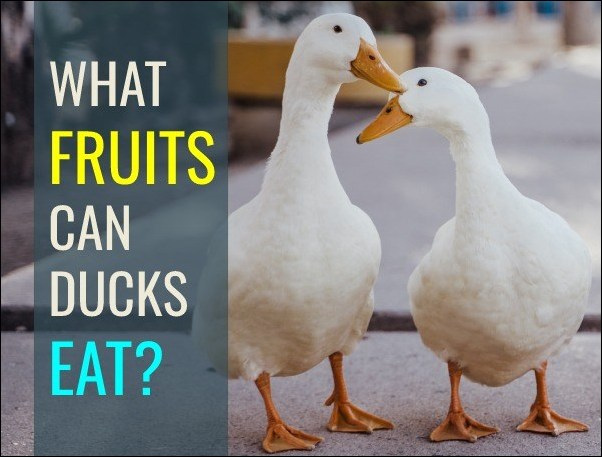
Safe ways to feed watermelon to ducks

There are numerous ways to give your ducks or the duck in the park watermelon in a safe manner. By safe, I mean decreasing the risk of harming them. Ducks can be harmed by overeating or having too big pieces that get stuck in their throat.
I usually switch between eight different ways to feed my ducks’ watermelon, which I consider safe.
1. Cutting the watermelon in half
Cutting the watermelon in half is the most common way I feed my ducks. It doesn’t take much effort more than slicing the melon into two pieces. They will resolve the rest. It keeps them occupied for a while, and in return, I get an almost transparent rind.
2. Watermelon cubes with their regular food
Their regular food can sometimes be bland, and I try to spice things up for them. They get their mandatory regular duck pellets but always get fruits and other vegetables. To make sure they get the proper size of the cubes, I use this vegetable chopper that removes the hassle of cutting. That way, I can be sure the watermelon doesn’t have any pieces too big for them.
3. Watermelon cubes in water
Ducks love to eat their food in some water. The water helps them swallow the food easier and decreases their risk of choking on too big pieces. Another way to reduce the risk of feeding them too big pieces is to use a vegetable chopper.
4. Make a salad with watermelon for your ducks.
Making a fruit salad containing watermelon is an excellent way to give the ducks fresh fruit and keeping them hydrated at the same time.
Some fruits that go well with watermelon are:
You can also add some vegetables to the salad if you want. Tomatoes, boiled and cooled potatoes, peas, corn, green beans, kale, and various sprouts are excellent with watermelon. You can add some nuts on top as well.
5. Give the ducks a slushie
If you are using a blender or food processor, you can make slushies for your duck friends. You will need to chop some pieces of watermelon, freeze them for some hours, and take them out and let them defrost for 10 minutes. Add them to a blender or food processor and run the pulse program. That way, there are still small chunks of watermelon left and brings a great texture. You can also add other red fruits like strawberries, raspberries, or lingonberries.
6. Make watermelon popsicles
If you have kids, you might have already made your own popsicles. Making popsicles is super easy and doesn’t take much effort.
The popsicles can be enjoyed both by your family members as well as your ducks. I have used these molds for a long time, and they do a great job standing upright in the freezer. It’s easy to remove the container when you want to take one out. I usually squeeze it gently before taking the popsicle out.
- Run the watermelon in a blender until it’s liquid.
- Pour the liquid into the molds
- Let it freeze for 24 hours.
- Feed your ducks or yourself with a tasty popsicle
Other flavors ducks enjoy are strawberries, raspberries, peas, and cucumber.
Please don’t make any popsicles with acidic fruits like oranges or lemons unless they are for yourself. The acidic in citrus fruits can cause acid reflux in ducks.
7. Give them flavored watermelon water.
Flavored water is a good bonus for your ducks. You can add a small amount of water gathered from your watermelon to their drinking water. That way, they will drink more and keep hydrated.
8. Reuse old watermelon shells as a bowl.
Have you scooped out the fruit flesh from a watermelon recently? The ducks can use it as a feeding bowl and help you eat the watermelon you missed scooping out. You can use the bowl when you are giving them the salad containing watermelon.
🥜 Seeds and nuts are a great food for ducks to eat. There are some nuts you shouldn’t give ducks. Find out which here.
Unsafe ways to feed watermelon to ducks
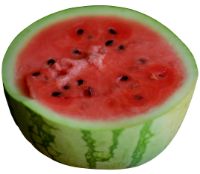
Sometimes your mind wanders off, and you do things without thinking—a little bit on autopilot. Here’s a small reminder on some things you should avoid doing when feeding your duck watermelon.
1. The watermelon is cut into too large pieces.
If you have cut the watermelon into too large pieces, the ducks will have a hard time. Ducks don’t chew their food, and they will have a problem consuming it without the risk of choking.
If the pieces are too large, they will try to swallow it, but if the pieces are complete with a rind and all, they will nibble.
So, either give them a large piece with rind and all. Or chop the watermelon into tiny pieces, preferably with a veggie chopper.
2. Feeding them the watermelon in the same water they are swimming.
Sometimes you might want to enjoy a treat while taking a bath. That might be a good idea for humans, but for ducks, it can be harmful. When you put food in a pond or lake where other species live, you can disrupt the biodiversity and ecosystems below the surface. Adding food to the pond can cause algae growth, disturbing the food chain under the surface.
3. Feeding the ducks moldy or rotten watermelon
It’s never a good idea to eat something that has rotten or started to grow mold. Rotten and moldy food’s place is on the compost, where it can bring joy to microorganisms and turning the watermelon into good soil.
If the watermelon has started to turn soft, it has begun the rotting process. Instead of feeding yourself or the ducks, you can look further. You can bring pieces of the watermelon to a nearby anthill and provide them with food for months to come. Cut the watermelon into as small pieces as you can and place them around an anthill. Not long after, you will see hundreds of ants rushing towards the parts and bringing them home to their queen.
4. Feeding them watermelon with stuff they can’t eat
If you have made a slushie, ice cream, or a salad of some sort, including watermelon, it can be tempting to give the leftovers to the ducks. You will need to check whether they can eat everything on it. Salads sometimes contain spinach, lemons, avocados, and other stuff ducks can’t eat. I wrote a resource with over 60 examples of vegetables and explained if a duck could or couldn’t eat the vegetable.
If you want to treat your ducks with watermelon ice cream, you will need to check the ingredient list. Ice cream is often made from dairy milk. Ducks can’t eat dairy, and it will hurt them. However, popsicles with watermelon are fine.
5. Feeding too much and too often
Although watermelons are fairly low in calories, you should still serve them in moderation. If the ducks fill their stomachs with watermelon, there isn’t much room for much else. In comparison, watermelon is mostly water and doesn’t provide as many nutrients as other food does, which takes up less space in the stomach.
You might want to give the watermelon as a dessert after their regular duck pellets and other food. That way, you will ensure they get the correct nutrients. With a belly full of watermelon, the duck isn’t motivated to forage for other foods.
How often should I feed watermelon to my ducks?
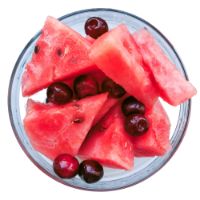
You can feed ducks with watermelon as often you would like. Due to the volume the watermelon takes in the duck’s belly; you will need to feed the ducks their regular diet first. You must make adjustments to their other food if you are to incorporate watermelon into their diet.
🐹 Ducks usually eat duck pellets, but they can also eat other fodders. Learn what fodders ducks can eat here.
How much watermelon can I give to my ducks?

You can give as much watermelon as you want to your ducks as long you adjust the other food in their diet accordingly. Ducks have a limited calorie budget, and you can add it, and should as long as your ducks receive all the required minerals and vitamins.
How do I store watermelon for ducks?
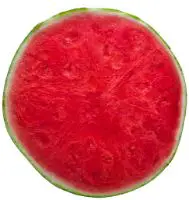
The best way to keep watermelon fresh is to either keep it at room temperature or in the fridge. It’s important to cover the watermelon with plastic or in a ziplock bag. That keeps it fresh for about three days.
If you cut the watermelon into small chunks intended for slushies, you can store them in the freezer in a plastic container.
🌷 Did you know ducks loves to eat herbs? Find out what herbs ducks love to eat here
Health benefits for ducks from eating watermelon
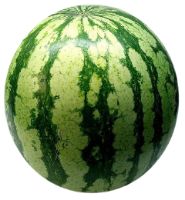
There are many benefits for ducks to eat watermelon. Watermelon is rich in potassium and vitamin c, which are paramount for ducks. It keeps them full and hydrated but also enriched with vitamins and minerals.
Calcium in watermelon for ducks
Calcium is essential in the duck’s diet, especially for egglaying ducks. In watermelons, there is 8mg of calcium per 100 grams of watermelon. Eggshells are almost entirely made out of calcium. The calcium consumed by the mother duck gets transferred to the balut inside the egg. Calcium is usually found in dairy products but can also be received from vegetables. Vegetables ducks can eat rich in calcium are kale, celery, broccoli, collard greens, and edamame beans.
Potassium in watermelon for ducks
Potassium is vital in the duck’s diet. In watermelons, there is 116mg of potassium per 100 grams. Potassium regulates fluid balance. Electrolytes like potassium and sodium regulate fluid balance. It’s essential to give your ducks a potassium-rich diet. Examples of foods rich in potassium ducks can eat are bananas, broccoli, brussels sprouts, peas, lentils, nuts, potatoes, and tomatoes.
Conclusion
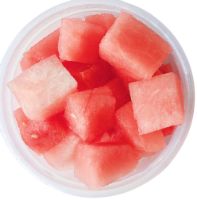
Ducks can eat watermelon and they really like it. Ducklings can also eat watermelon, but need to be at least four weeks old before doing so. Until then, they will need to stuck with their regular duckling pellets.
Watermelon has a pretty high water content and should therefore be offered in moderation. Otherwise, it could lead to diarrhea, dehydration and also kidney failure.
Feeding ducks watermelon once a week is fine, but shouldn’t be a daily staple.
Ducks love to nibble on the rind of the watermelon. Neither the rind or the seeds are harmful for them.
Frozen watermelon can be offered to ducks, as long as they are either defrosted or in a slushie form.
You should never give moldy watermelon to ducks or any other animals. Mold is toxic and can be lethal.
Safe ways of feeding watermelon to ducks:
- Cutting the watermelon in half
- Watermelon cubes with their regular food
- Watermelon cubes in water
- Make a salad with watermelon for your ducks
- Give the ducks a slushie
- Make watermelon popsicles
- Give them flavored watermelon water
- Reuse old watermelon shells as a bowl
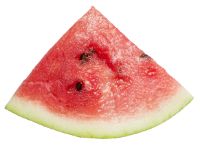
Unsafe ways of feeding watermelon to ducks:
- The watermelon is cut into too large pieces
- Feeding them the watermelon in the same water they are swimming
- Feeding the ducks moldy or rotten watermelon
- Feeding them watermelon with stuff they can’t eat
- Feeding too much and too often
You can give as much watermelon as you want to your ducks as long you adjust the other food in their diet accordingly. You can feed ducks with watermelon as often you would like. Due to the volume the watermelon takes in the duck’s belly; you will need to feed the ducks their regular diet first.
The best way to keep watermelon fresh is to either keep it at room temperature or in the fridge.
Watermelon is rich in potassium and vitamin c, which are paramount for ducks.
